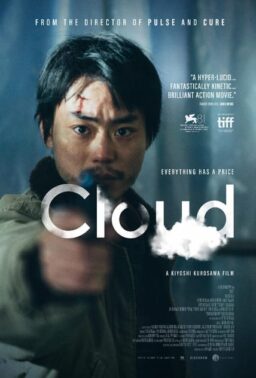Immediately upon exiting “Megalopolis,” Francis Ford Coppola’s wine-backed passion project, I had a single, inescapable thought: I’m glad I got to watch Coppola’s “Chi-raq.”
For some, that admittedly jarring comparison will be a total turnoff. After all, for Spike Lee, a maverick filmmaker who’s always been in a daunting dance with major studios, “Chi-raq” was a major gamble that was initially (and in many corners still is) seen as a bitter folly. And while Lee’s film cost a tenth of the budget Coppola raised for his final statement, its maximalist stylist and spirit offer plenty of parallels between the two films.
A modern update to the Greek playwright Aristophanes’ Lysistrata, “Chi-Raq” immediately found controversy using Chicago’s South Side (particularly the ensuing bloody gang wars, which by that point were already making national headlines) as the backdrop for a musical crime romance starring Nick Cannon and Wesley Snipes as opposing gang leaders, and Teyonah Parris as the leader of a Black-woman army fed up with murder. At the time, Chicago Mayor Rahm Emanuel—who was more worried about the city’s reputation than he was about damaging divestment and systemic racism—pushed back against the film, especially the use of the term “Chi-raq” (a portmanteau of Chicago and Iraq). The city even threatened to withhold tax dollars from the production. The result might be among Lee’s angriest films, featuring verse and sex battles, bonkers staging, politically fervent demands: stop the violence; rework racist white power structures; rework the power imbalance curtailing the poorest, Blackest neighborhoods.
Similar to any Lee project, the director made “Chi-raq” using his own rules and finding his own way around malicious politicians, while crafting a sprawling and tonally oddball film where nothing much makes sense except his disdain for the status quo. These were all the spirits that inhabited what might still be his emotionally rawest film to date.
Coppola’s “Megalopolis” works on a similar wavelength. On its face, “Megalopolis” is a contemporary Roman story of two politically powerful foes—Cesar Catilina (Adam Driver) and Mayor Franklyn Cicero (Giancarlo Esposito)—each vying for control of the city. Cesar is the scion of the empire’s richest family. He’s also a brilliant architect capable of stopping time, and is in love with Mayor Franklyn’s daughter (Nathalie Emmanuel). That’s the simple version. There is plenty more: Aubrey Plaza stuns as social-climbing TV personality Wow Platinum; Jon Voight crafts a surprisingly effective performance as Driver’s father; Shia LaBeouf is surprisingly vital a rising political figure using the language of collective action to undermine the most vulnerable; Dustin Hoffman and Talia Shire tip their hats too.
The film’s form is especially unwieldy. A satellite crashing back down to Earth takes up the entirety of the first half, but its effects are never returned to again. Characters come and go without reason. It’s as though every thread has been tangled and smashed into a flat pancake, which makes one wonder if a crazier four-hour cut could occur. The very concept of Driver yelling “time stop” to pause the world around him along with the futuristic material he has invented—that can literally reshape whole cities—is also underwritten. This is a film with bad creative, narrative, and thematic choices, which looks surprisingly flat. And yet, I wholly loved its wild eccentrics and its go for broke attitude. “Megalopolis” is exactly what movies can and should be—unflinchingly earnest.
Much like “Chi-raq,” a good chunk of dialogue in “Megalopolis” is in verse, and emceed by Laurence Fishburne (an early Lee collaborator). It’s also just batshit crazy: Silent film references spanning “Metropolis” and “Ben-Hur” abound, there’s an overload of tryptic frames, and the humor and politics veer between hilarious and distasteful. At one point, a man came onto the stage with a microphone to speak to the screen in a dimension-breaking scene that made even the people who would go on to dislike the film, perk up. It’s also cacophonous, cheap, extravagant, and clearly bursting with ideas that Coppola has been saving for decades. But more than anything, like “Chi-raq,” there is a desire to prove the haters wrong by sheer force of will. There is life and vitality in all the decisions that work—and the ones that don’t. Only Lee could have gotten a film as charged and as ambitious as “Chi-raq” made. Nearly a decade later, it’s special to see Coppola do the same.












